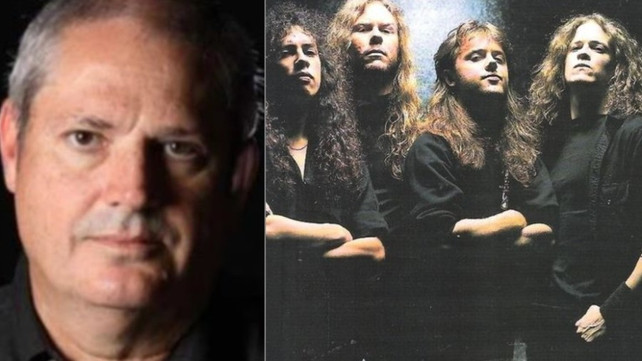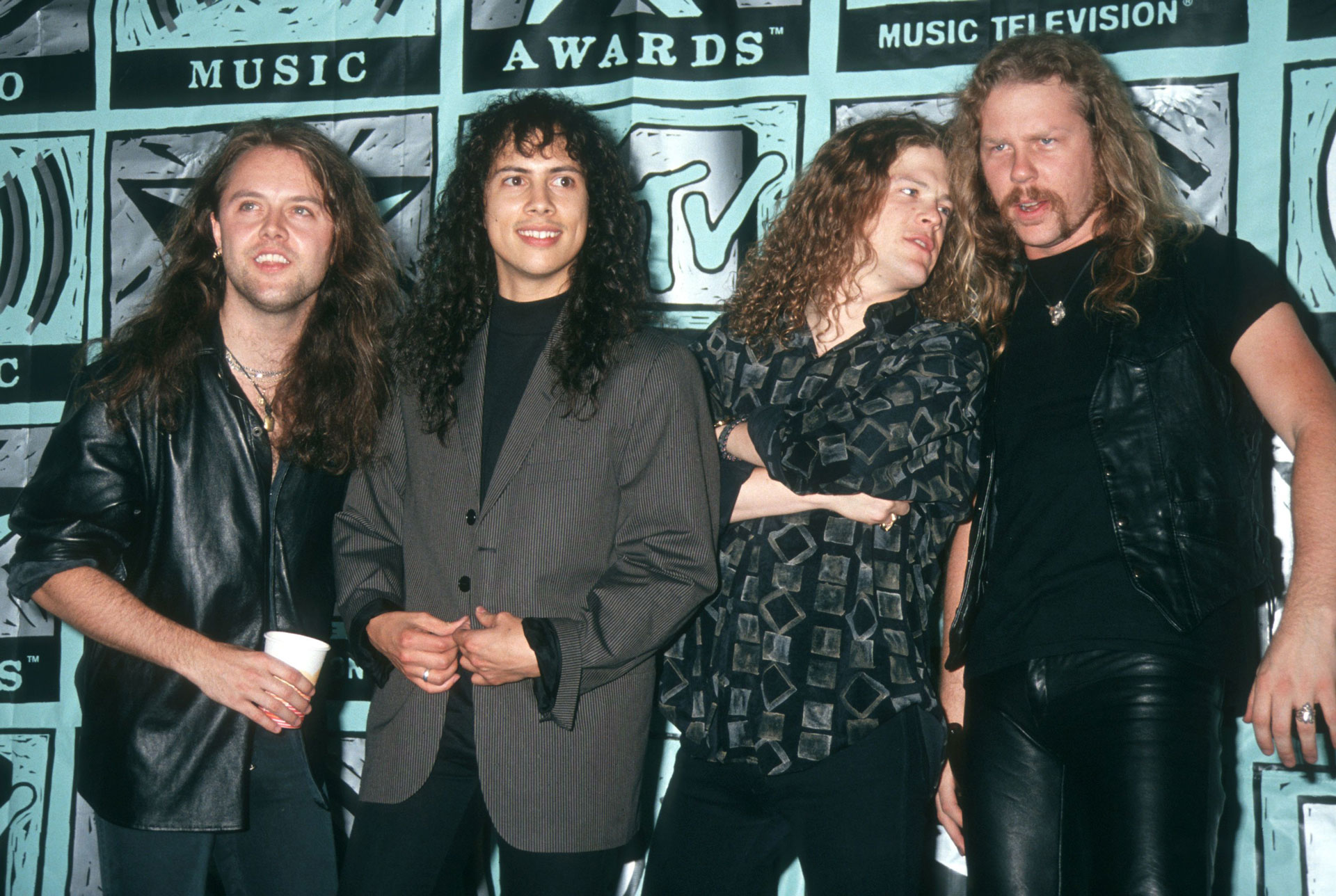Metallica’s Original ‘Justice’ Producer Talks How Band Treated Him & Why It Didn’t Work Out
“They bristled at someone trying to tell them what to do,” Mike Clink said.

During a conversation with Classic Rock, Mike Clink talked about being hired by Metallica to produce 1988’s “…And Justice for All,” and why the collaboration ultimately didn’t work out.
At the time, Clink caught the attention of drummer Lars Ulrich by producing Guns N’ Roses monumental 1987 debut “Appetite for Destruction.”
However, the sessions with Mike weren’t going anywhere and the band decided to go back to Flemming Rasmussen, who produced 1984’s “Ride the Lightning” and 1986’s “Master of Puppets” – and who wasn’t available for producing “Justice” at first.

In 1990, Clink co-produced Megadeth’s “Rust in Peace.” On the “Justice” album, he is credited as the drum engineer.
During the recording sessions, frontman James Hetfield was particularly unhappy with the whole process. Mike said on why it didn’t work out with Metallica:
“As much as I believe they wanted me to put my magic on the tracks, I think that they were used to doing things on their own and doing it their own way.
“I always felt that I was in the wings, waiting until Flemming got free or they could convince him to work on the record – at that moment in time, it just wasn’t working…
“They bristled at someone trying to tell them what to do. And I think it was as much my fault as their fault.
“You know, I had just come off of the Guns N’ Roses record and doing things my way, and having my say. And I kind of ran into a bit of a brick wall and it was difficult for me.
“Also, the absence of Cliff [Burton, bass] was a little unsettling to them… In the back of their minds, maybe they wanted something more familiar because that was a big step without him.”
With the source adding that “whatever the real problem was, by the end of the third-week recording, Lars was on the phone to Flemming, virtually begging him to rearrange his schedule and fly out to rescue the sessions,” Rasmussen chimed in:
“Lars called me and said they were going nowhere and they were getting fed up with it and asked if I was available just in case.
“I told him I had a lot of gigs booked and if he needed me there I should know pretty fast… I got called up the next day and he said come on over. Like, ‘When can you be here?’
“He [Clink] probably expected them to be more of a band-band where everybody played at the same time and you kind of took it from there. And they were nowhere near that at that time…
“They were fucking around with guitar sounds and had been so for like two or three weeks, and James was really unpleased. [Laughs]
“When I spoke to Lars, he said, ‘We’re not gonna do another ‘Master.’ It’s gonna be more in your face. It’s gonna be as pumped and as upfront as possible.'”
Focusing on the album’s infamous lack of bass, Clink commented:
“They weren’t leaving enough room, sonically, to fit the bass in. But that was their concept and I think that if Cliff had been there it might have been a bit different. But with the new member, I felt he didn’t have as much to say.
“I think he was just happy to be there, at that moment. I think Jason [Newsted, bass] just said, ‘This is the way it is, let’s roll with it.’
“It’s also the sound of the guitar. It takes up a lot of room in the sonic spectrum. But ultimately that was the decision of the band and the mixer.”
Rasmussen pointed out:
“I know for a fact, since I recorded it, that there’s brilliant bass playing on that album.”





